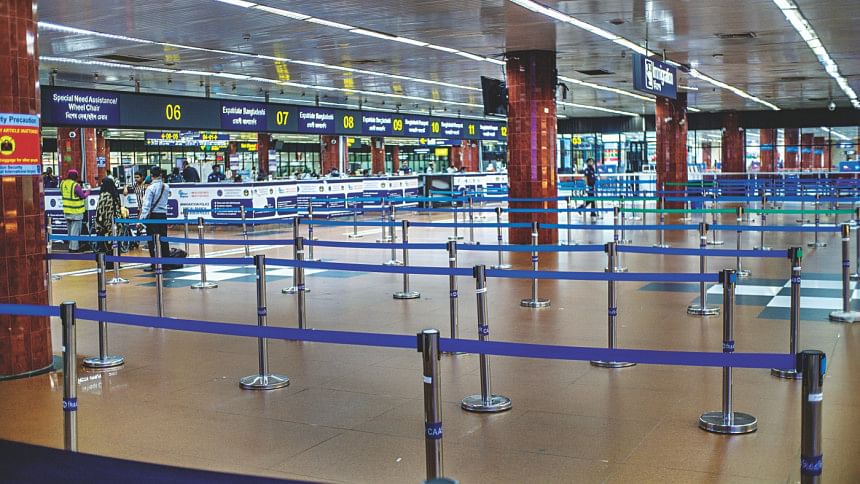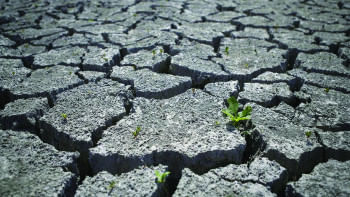‘Why did I even get tested, if no one would check?’

Ever since the Malaysian authorities imposed a stringent lockdown in the country in March, Asif Rahman had been counting down the days in his small Kuala Lumpur apartment till when he could reunite with his family in Bogura.
Asif, who first went to Malaysia as a student in 2014 and returned home last year, landed in the Malaysian capital on March 5 on a single-entry visa. He was looking to process a work permit there, having secured a job offer from the event management company where he had been working part time during his student days.
However, the Covid-19 pandemic rattled his plans, and his days of uncertainty began since the Malaysian government issued a 'Movement Control Order' (MCO) on March 17, days before his visa was about to expire and he could not process his work permit.
Asif sold his old furniture and car -- that he had bought there during his previous stay -- to keep his nose above the water, as he looked for the first exit out of the country.
Finally, that opportunity came, in the form of a special flight on June 12 operated by a private Bangladeshi airline.
"I, and others returning on the flight, had to get tested for Covid-19 and confirm that we did not have the virus, as well as obtain declaration documents from the embassy. After a hectic week of preparations, it was the day of the flight, and I arrived at the airport four hours before the flight, as per instructions," Asif told this newspaper over phone.
"When they sold the tickets, the airline had told us they would maintain social distancing and other health regulations on the flight, but there were over 150 of us in the aircraft, packed to capacity. When I asked about it, airline staff said the Malaysia government allows carrying passengers at full capacity, so they were doing it. They also provided us food on the flight, which I was not expecting under the circumstances. They did not seem to even have any gloves in stock, and when my latex gloves ripped in the flight and I requested for a pair, the steward walked off and never came back.
"Another flight from Maldives landed in Dhaka at the same time as ours, around 5:00pm. There is just one thermal scanner at the airport. I stood in a crammed queue for over three hours just to get to the health desk, sweating through a PPE.
"They just took my temperature at the health desk, and did not even ask me if I had done a Covid-19 test, let alone any other questions. They took the health declaration form (that we were given in the flight and asked to fill up), and gave us a stub back to submit at the immigration desk. Then the person handed me a leaflet on what to do while in home quarantine and a hotline to contact if I felt sick," he shared.
"I had obtained three official copies of my Covid-19 negative certificate, anticipating that I would need to submit it to various authorities when I returned. But at the desk, I wondered what the use of the test was if the authorities were not even going to check it upon my entry to the country.
"The person at the health desk did not even give us any document that we were cleared from the airport, nor what date we arrived and up to which date we have to be in home quarantine. How is this an official procedure? They just took my health declaration form, on which I could have easily lied. All they did was check my temperature and hand me a leaflet. This is what bothered me the most," said Asif.
"Even at the queue, people were crowding together instead of maintaining distance, and the authorities merely watched," said Asif when asked if social distancing was maintained by returnee passengers at the airport.
"Let me tell you the difference between the KL airport and Dhaka. Before entering the KL airport, there are thermal scanners at every gate. After the check-in and before immigration, there is a second thermal scan, and before boarding the flight there is a third. At Dhaka, there is a grand total of one scanner. All cafés, restaurants and souvenir shops at the KL airport have been closed down; when I arrived, the usually-bustling airport looked like a zombie land. Here in Dhaka, I saw fast food shops open here and there. Even my co-passengers, who followed social distancing properly at the KL airport, seemed to have entirely forgotten it when they landed here.
"It was not just at the airport. Even as I crossed Chandra and Bypail intersections on my way home, I saw fruit markets and tea stalls open and thriving late into the night. The traffic jam on the highway, and all the open shops and businesses were not something I was expecting. In the three months in Malaysia, their government showed us what a lockdown really should be, but here, it felt like there's no reason for alarm.
"I am at home now, in complete isolation. I did the Covid-19 test before flying back not just because of regulations, but because I wanted to keep my family safe. But the system I saw in place has me worried," said Asif.
"However, I must tell you one more thing. Being in a PPE for the entire journey, I gained massive respect for all frontline workers who have to do this every day. It is an ordeal in itself, and I salute them," said Asif, almost as if he was determined to end the conversation on a positive note, despite all his disappointments.

 For all latest news, follow The Daily Star's Google News channel.
For all latest news, follow The Daily Star's Google News channel. 



Comments